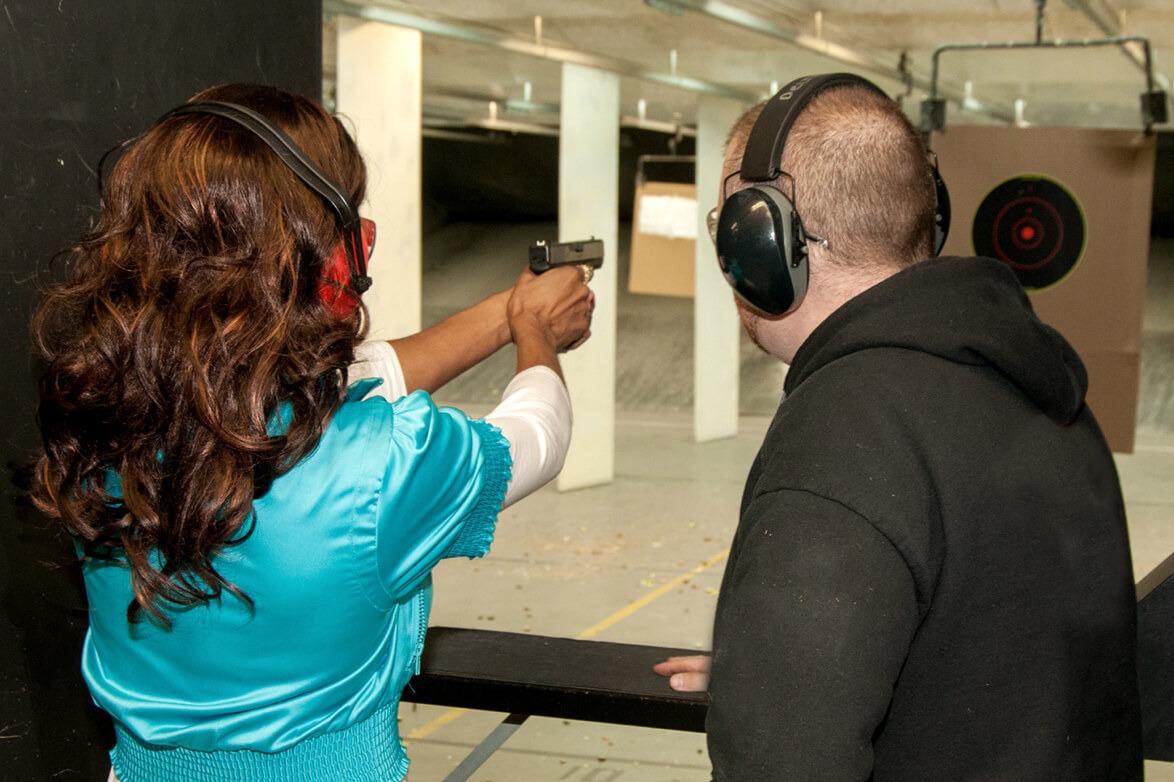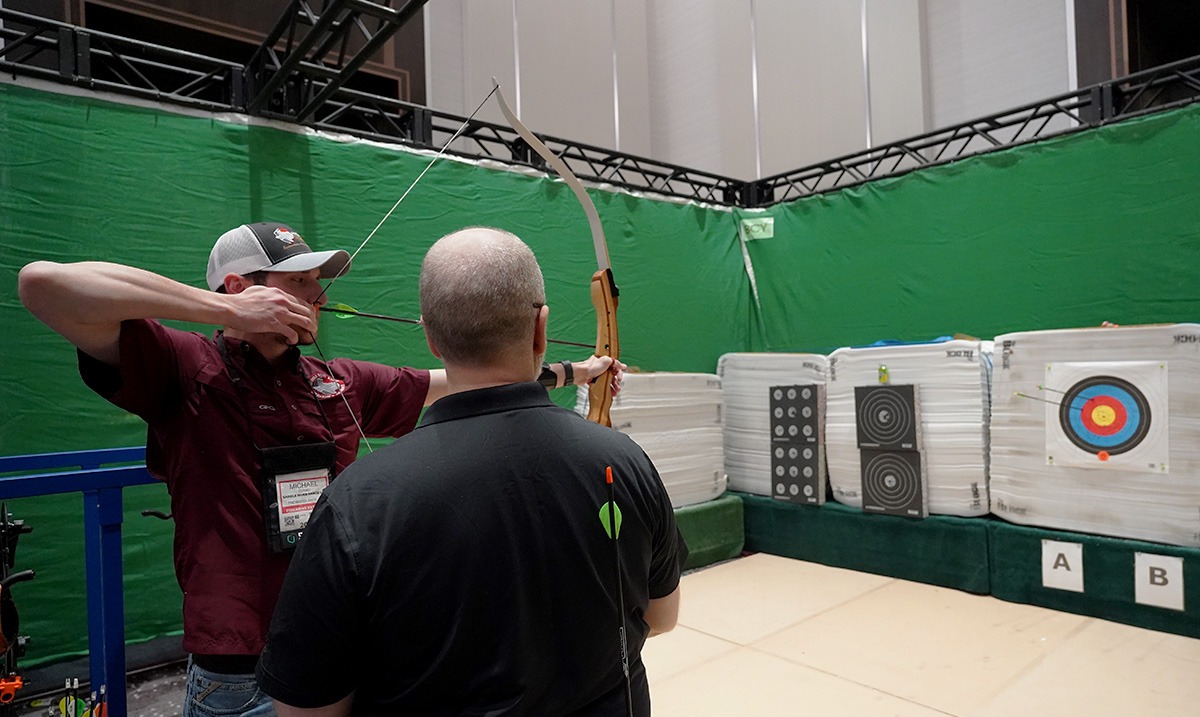 Back to News
Back to News
November 19, 2025
‘Permission Slip’ Now Required to Exercise Constitutional Right in Delaware
Earlier this week, U.S. District Court Judge Maryellen Noreika denied a motion seeking an injunction to halt Delaware’s new “permit-to-purchase” handgun law. Her decision was made not on the basis that such a blatant restriction to a fundamental right is unconstitutional, but that gun-rights plaintiffs hadn’t successfully proven the state’s infrastructure was not ready for such a bureaucratic burden.
That’s a far cry from a final word on the lawfulness of a sweeping scheme that forces every ordinary, law-abiding Delawarean to secure a state permission slip, complete mandated training, submit fingerprints and endure extra delays just to purchase a handgun for lawful self-defense.
While the law may be in effect for now, under the U.S. Constitution and Delaware’s own, it remains wholly unconstitutional , unethical and fundamentally unworkable.
Glaring Constitutional Problems
Delaware’s “permit to purchase” scheme, enacted as Senate Bill 2 in 2024, took effect November 16, 2025, requiring citizens to first obtain a “handgun qualified purchaser permit” from the State Bureau of Identification before they can purchase a handgun. That means an eight-hour training class, live-fire qualification (about 100 rounds), fingerprinting and a state and federal background check before they ever get to the gun retail counter.
The permit itself – at least monetarily – is free, but the state has pushed all real costs onto the applicant. Local courses cost roughly $125 plus the cost of ammunition, and applicants also pay fingerprinting fees and must take a day off work or find childcare to sit through the mandated class. For many working families, that is not “common-sense safety”—it is a price tag and time constraint roadblock to exercising a Constitutional right.
Judge Noreika’s opinion in Neuberger v. Bushweller focused almost entirely on roll-out logistics. Once the state withdrew some extra-legal “guidelines” and showed that it had processed a handful of permits—mostly for already-exempt groups—she concluded the plaintiffs hadn’t yet proven that the system was literally unworkable.
What she did not do is conduct the full Second Amendment analysis that Bruen requires or analysis under Article I, Section 20 of the Delaware state constitution. That day will come, and when it does, Delaware’s law will have to be measured against both the U.S. Constitution and a state constitution that is expressly more protective of the Second Amendment right to keep and bear arms.
Turning a Fundamental Right into a Licensed Privilege
As if the Second Amendment wasn’t clear enough; Article I, Section 20 of the Delaware Constitution is exceptionally clear: “A person has the right to keep and bear arms for the defense of self, family, home and State, and for hunting and recreational use.” In fact, Delaware’s Supreme Court has already held that this provision is “intentionally broader” than the Second Amendment, aggressively protecting public carry and armed self-defense as fundamental rights.
In September, a Delaware Superior Court judge invoked that same provision to strike down the state’s attempt to bar adults aged 18–20 from purchasing firearms, holding that the law infringed their right to self-defense. In other words, Delaware’s own courts have already recognized that the state cannot arbitrarily fence off broad swaths of its adult population from exercising firearms rights.
Delaware has tried to dress its law up as objective and “shall-issue.” In practice, it stacks conditions and delays – mandatory training, live-fire, fingerprinting, processing windows and bureaucratic confusion that even Judge Noreika flagged as problematic when she imagined trying to navigate the system herself. A right that can be exercised only after the state’s bureaucratic machinery cooperates, instructors are certified, classes are available and fees are paid looks far less like a right and far more like a licensed privilege.
That is not what Article I, Section 20 – or the Second Amendment – allows.
A Modern Poll Tax on Self-Defense
Supporters of “permit-to-purchase” laws insist they are “gold standard” public-health policy, citing selective studies from gun control advocacy-aligned academic centers. Delaware’s attorney general has claimed that such laws reduce gun homicides and suicides by double-digit percentages and cut trafficking dramatically, pointing to work from Johns Hopkins University. History tells a different story.
An independent review by the RAND Corporation of licensing and permitting regimes across multiple states found the evidence for any homicide-reduction benefit to be “inconclusive.” Such schemes don’t replace the FBI’s National Instant Criminal Background Check System (NICS) but duplicate it, forcing law-abiding purchasers to clear the same system twice – once for the permit and again at the point of sale – with no demonstrated public-safety gain.
What is clear is who bears the burden. “Permit-to-purchase” systems shift costs onto those least able to pay: low-income urban residents, single parents, shift workers and those living in neighborhoods where the police cannot be everywhere and the need for self-defense is most acute. Training classes, ammunition, fingerprinting and lost wages add up fast.
These mandatory, state-imposed financial and procedural hurdles to the poll taxes once used to keep disfavored citizens away from the ballot box. Charging people to exercise a right – or burying that right under layers of time- and money-intensive red tape – is not “safety.” It is discrimination by another name.
The Absurdity of Redundant, Bureaucratic Gun Control
Even Judge Noreika noted that state police had quietly layered extra “guidelines” on top of the statute, demanding state approval of training courses and instructors – requirements not found in the law itself and only withdrawn after litigation made them impossible to defend. During Jim Crow, states did not always attack rights head-on. Instead, they used procedural and financial barriers—poll taxes, literacy tests, “good character” requirements and discretionary licensing—to make it practically impossible for disfavored citizens, especially Black Americans and the poor, to exercise rights they nominally still had on paper.
Today’s “permit-to-purchase” laws follow the same playbook. On paper, everyone can apply. In practice, the real costs fall hardest on those with the least time and money: low-income workers, single parents, shift employees and people living in high-crime neighborhoods who have the greatest need for self-defense.
All of this comes on top of an already aggressive slate of gun restrictions, including bans on so-called “assault weapons” and standard-capacity magazines, both of which are mired in ongoing litigation. The pattern is unmistakable: a legislature and executive branch determined to ratchet lawful gun ownership into a narrow, state-managed privilege, checked only when courts step in.
Ripe for Reversal
Gun-rights groups have already appealed the denial of the injunction, and the underlying challenge to Delaware’s “permit-to-purchase” law remains very much alive. As the litigation proceeds, the core questions will finally be squarely before the courts: whether a state can turn a clear, textually protected right into a permission-slip system, and whether modern, evidence-lite public-health theories can override the constitutional command.
The U.S. Supreme Court has made plain that the right to keep and bear arms is a fundamental individual right, “necessary to our system of ordered liberty,” not a gift that politicians and regulators may dole out to the few who can afford to jump through their hoops. Delaware’s “permit-to-purchase” law fails that test. It is unconstitutional under Heller, Bruen and Article I, Section 20; unethical in its discriminatory impact; and absurd as public policy.
Delaware’s law may have survived its first night in court, but it should not survive serious constitutional scrutiny.
You may also be interested in:
New York Understandably Seeing Surge in Second Amendment Interest, Gun Purchases
Federal Bills Introduced to Safeguard Second Amendment Rights During Government Shutdowns
Categories: BP Item, Featured, Government Relations, Top Stories








